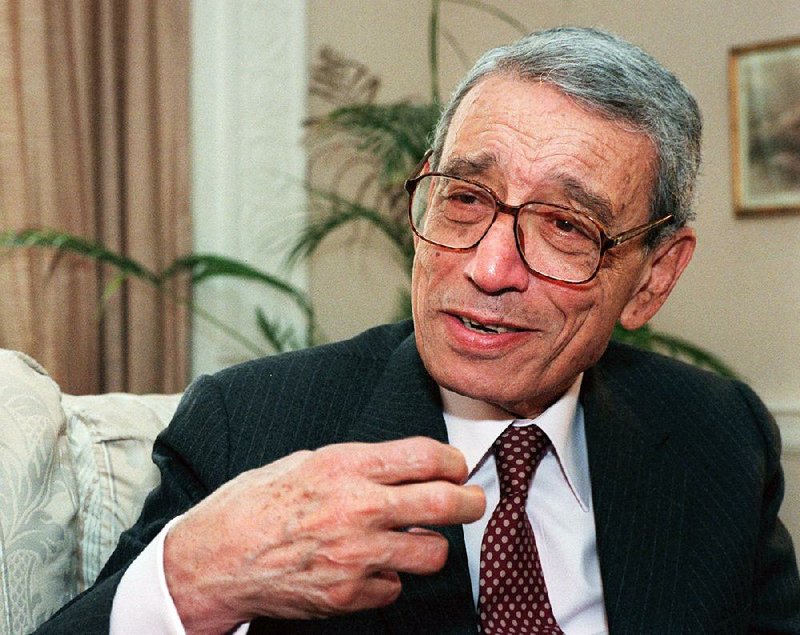Boutros Boutros-Ghali, an Egyptian diplomat who led the United Nations in a 1990s tenure that began with hopes for peace after the Cold War but ended in disputes with Washington, died Tuesday in an Egyptian hospital. He was 93.
His death was confirmed by the office of Secretary-General Ban Ki-moon. Ban later made a brief appearance before reporters at the U.N., calling Boutros-Ghali "a memorable leader who rendered invaluable services to world peace and international order."
The website of Al-Ahram, Egypt's state-owned newspaper, said Boutros-Ghali died Tuesday in a hospital in Giza, on the outskirts of Cairo, where he had been admitted a few days earlier with a broken leg. He and his wife, Leia Maria Boutros-Ghali, had no children, Egyptian diplomats said.
Boutros Boutros-Ghali was a keystone of Egyptian diplomacy, a senior minister to President Hosni Mubarak and to his slain predecessor, Anwar Sadat. In 1992, he became the sixth secretary-general of the United Nations, the first African and the first Arab to hold the post.
The scion of a politically active Coptic Christian family, he accompanied Sadat on his historic olive-branch mission to Jerusalem in 1977, then played a pivotal role in the Camp David accords. He was at the White House when Sadat, Israeli Prime Minister Menachem Begin and President Jimmy Carter signed the 1979 treaty ending a 31-year state of war between Egypt and Israel.
Boutros-Ghali took the U.N.'s helm at 69, determined to subdue aggression and pursue peace after the fall of Soviet communism and a relaxation of East-West tensions that had long hamstrung the U.N. He also resolved to tackle the organization's bloated bureaucracy and chronic money problems.
But he faced daunting tasks. Civil wars in Somalia and the secessionist states of Yugoslavia had already begun. Deadly conflicts between Hutus and Tutsis were hurtling toward genocide in Rwanda. And 60,000 U.N. peacekeepers were already thinly posted in a dozen trouble spots.
Boutros-Ghali's relations with President Bill Clinton's administration were soured almost from the start in 1993 by foreign policy differences, political infighting and friction with Secretary of State Warren Christopher and Madeleine Albright, who was Washington's representative at the U.N. before succeeding Christopher at the State Department.
The United Nations needed U.S. support for peacekeeping operations. But Boutros-Ghali said he was often rebuffed when he tried to see the president and other officials to discuss what he called an "utterly confused" U.S. foreign policy.
Although he had said early on that he would not seek a second term as secretary-general, Boutros-Ghali ran again. Late in 1996, the Security Council voted overwhelmingly to give him another term. But Albright, in her last days as the U.S. delegate, cast a veto as one of the five permanent council members. Boutros-Ghali became the only secretary-general denied a second term.
Boutros-Ghali was born in Cairo on Nov. 14, 1922. His father had been finance minister. His grandfather, a prime minister under the British, was assassinated in 1910.
Boutros-Ghali earned a law degree from Cairo University in 1946 and a doctorate in international law from the University of Paris in 1949. He was a Fulbright scholar at Columbia University in 1954-55.
After his term at the U.N., Boutros-Ghali was secretary-general of La Francophonie, an organization of French-speaking countries, from 1997 to 2002.
Information for this article was contributed by Somini Sengupta and Rick Gladstone of The New York Times.
A Section on 02/17/2016
